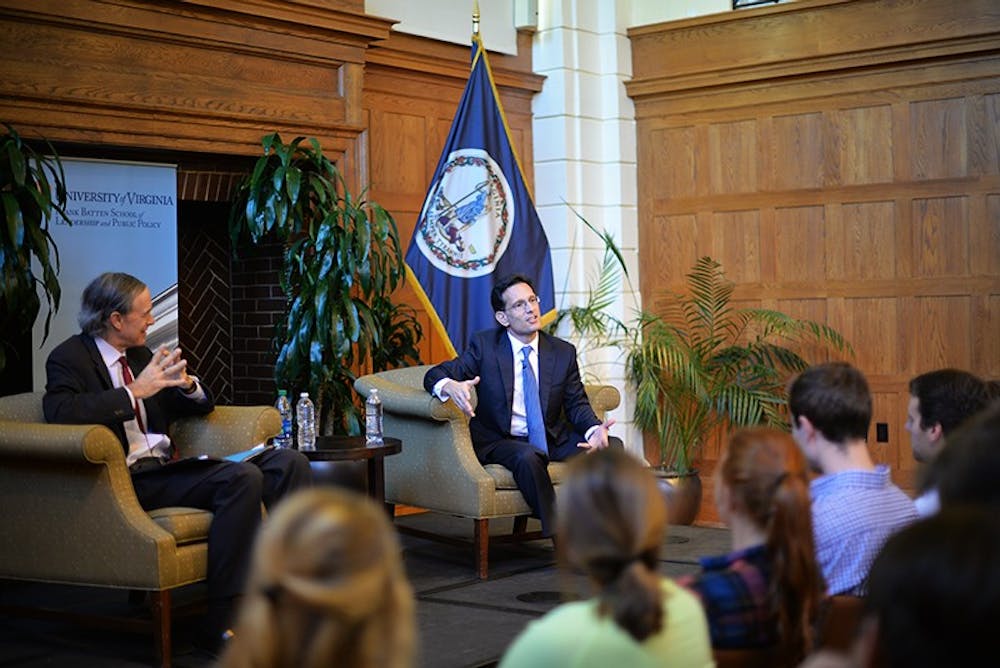Former U.S. House Majority Leader Eric Cantor visited the Batten School Friday to discuss the 2016 presidential campaign and the Republican Party's plan for economic growth.
Cantor was a member of the House of Representatives for 13 years, serving as Republican chief deputy whip, minority whip and eventually the majority leader.
Cantor stepped down as majority leader in what many political analysts describe as a stunning primary defeat in Virginia’s 7th District against Dave Brat in August 2014.
Batten Prof. Gerald Warburg praised Cantor for his work in Congress and his pursuit of solutions across the political aisle.
“Mr. Cantor performed his service with grace, with dignity and with humility,” Warburg said. “He articulated a clear vision of how he saw the nation’s best interest secured.”
When asked whether he thought bipartisan agreements were possible in Congress, Cantor said doing good and blending free market entrepreneurial practices and concepts can lead to bipartisanship agreement. Cantor pointed to the JOBS Act as an example.
“This bill brought together both sides,” Cantor said. “It was premised on the fact that America unfortunately has seen a downward trend in business startups.”
He said it is important for both sides to start on common ground.
“We said, ‘Listen, let’s set aside what you think about wealth disparity or upward mobility and how to get there,’” Cantor said. “‘We can all agree that business start-ups, entrepreneurialism and being a start-up nation is something both sides agree with.’”
Regarding the current presidential race, Cantor said he believes the large number of candidates from various backgrounds in the 2016 Republican primary campaign is good for the party.
“I think it is a good thing to have a robust field — it’s clearly been a good thing for the media outlets and television companies,” Cantor said.
Students were able to ask Cantor questions, including ones about Trump’s controversiality, Cantor’s position on affirmative action and what it’s like to be a Congressman on a daily basis.
Batten Graduate Council President Terrence Mason, a second-year Batten graduate student, asked how the eventual Republican nominee would generate better relations with Latino voters for the general election, after what Mason said he believed would be Trump’s eventual downfall.
Cantor responded by saying that the Republican nominee will have to appeal to a diverse community.
“Our opportunity does come from equal application of the law,” Cantor said. “It’s the fabric and nature of who we are — demonstrating your commitment and respect for the law and at the same time forging a solution that we can do that in America that invites opportunity and upward mobility for all.”
Read this article translated into Chinese here.







